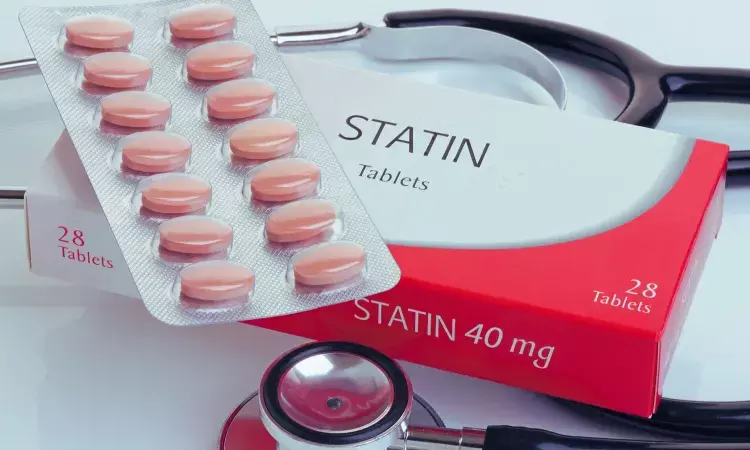- Home
- Medical news & Guidelines
- Anesthesiology
- Cardiology and CTVS
- Critical Care
- Dentistry
- Dermatology
- Diabetes and Endocrinology
- ENT
- Gastroenterology
- Medicine
- Nephrology
- Neurology
- Obstretics-Gynaecology
- Oncology
- Ophthalmology
- Orthopaedics
- Pediatrics-Neonatology
- Psychiatry
- Pulmonology
- Radiology
- Surgery
- Urology
- Laboratory Medicine
- Diet
- Nursing
- Paramedical
- Physiotherapy
- Health news
- Fact Check
- Bone Health Fact Check
- Brain Health Fact Check
- Cancer Related Fact Check
- Child Care Fact Check
- Dental and oral health fact check
- Diabetes and metabolic health fact check
- Diet and Nutrition Fact Check
- Eye and ENT Care Fact Check
- Fitness fact check
- Gut health fact check
- Heart health fact check
- Kidney health fact check
- Medical education fact check
- Men's health fact check
- Respiratory fact check
- Skin and hair care fact check
- Vaccine and Immunization fact check
- Women's health fact check
- AYUSH
- State News
- Andaman and Nicobar Islands
- Andhra Pradesh
- Arunachal Pradesh
- Assam
- Bihar
- Chandigarh
- Chattisgarh
- Dadra and Nagar Haveli
- Daman and Diu
- Delhi
- Goa
- Gujarat
- Haryana
- Himachal Pradesh
- Jammu & Kashmir
- Jharkhand
- Karnataka
- Kerala
- Ladakh
- Lakshadweep
- Madhya Pradesh
- Maharashtra
- Manipur
- Meghalaya
- Mizoram
- Nagaland
- Odisha
- Puducherry
- Punjab
- Rajasthan
- Sikkim
- Tamil Nadu
- Telangana
- Tripura
- Uttar Pradesh
- Uttrakhand
- West Bengal
- Medical Education
- Industry
Statins may have role in tuberculosis prevention in patients with bronchiectasis, suggests study

Taiwan: A recent retrospective cohort study published in BMJ Open Respiratory Research shows that statin treatment is linked with a reduced risk of tuberculosis (TB) in bronchiectasis patients, specifically when administered at higher doses.
"Statin treatment demonstrated a dose-dependent protective effect and was linked with a reduced risk of TB in bronchiectasis patients. These findings indicate that statins may play a role in reducing TB risk by modulating airway inflammation in this patient population," the researchers wrote.
According to the researchers, this is the first clinical study reporting an association between statin use and TB risk in patients with bronchiectasis. In a prior animal study, statins were revealed to have a potent adjunctive role to anti-TB drugs by intensifying their activity through phenocopying macrophage activation and regulating phagosomal maturation.
Chronic airway diseases have been associated with an increased TB risk, however, data is limited in bronchiectasis patients. Statins have been shown to exhibit anti-inflammatory effects by modulating the inflammatory response. Therefore, Kuang-Ming Liao, Department of Internal Medicine, Chi Mei Medical Center Chiali Branch, Tainan, Taiwan, and colleagues investigated whether statin treatment could reduce TB risk in patients with bronchiectasis.
For this purpose, the research team conducted a retrospective cohort study using a nationwide population database of bronchiectasis patients who did not receive statin treatment. The defined daily dose (DDD) of statin, current or past statin user and statin exposure time was measured for the impact of statin use.
The study's primary outcome was the incidence of new-onset tuberculosis. Considering of potential immortal time bias due to stain exposure time, Cox regression models with time-dependent covariates were employed to determine HRs for TB incidence among patients with bronchiectasis.
The study led to the following findings:
- Patients with bronchiectasis receiving statin treatment had a decreased risk of TB.
- After adjusting for age, sex, income, comorbidities and Charlson Comorbidity Index, statin users had a 0.59-fold lower risk of TB incidence compared with non-statin users.
- Compared with non-statin users, statin treatment was a protective factor against TB in users with a cumulative DDD greater than 180 per year, with an HR of 0.32.
In conclusion, the findings showed a reduced risk of tuberculosis with statins in bronchiectasis patients, exerting a dose-dependent protective effect. This protective effect was observed in patients of both sexes, different comorbidity levels, and all age groups.
The researchers suggest that healthcare providers should carefully assess the potential benefits of statin therapy in TB risk reduction while considering personal patient factors before incorporating statin use into their clinical practice.
"Nonetheless, there is a need for further prospective studies to obtain more information on the relationship between statin use and the risk of TB development," the researchers concluded.
Reference:
Liao, M., Lee, S., Wu, C., Shu, C., & Ho, H. (2024). Association between statin use and tuberculosis risk in patients with bronchiectasis: A retrospective population-based cohort study in Taiwan. BMJ Open Respiratory Research, 11(1). https://doi.org/10.1136/bmjresp-2023-002077
Dr Kamal Kant Kohli-MBBS, DTCD- a chest specialist with more than 30 years of practice and a flair for writing clinical articles, Dr Kamal Kant Kohli joined Medical Dialogues as a Chief Editor of Medical News. Besides writing articles, as an editor, he proofreads and verifies all the medical content published on Medical Dialogues including those coming from journals, studies,medical conferences,guidelines etc. Email: drkohli@medicaldialogues.in. Contact no. 011-43720751


